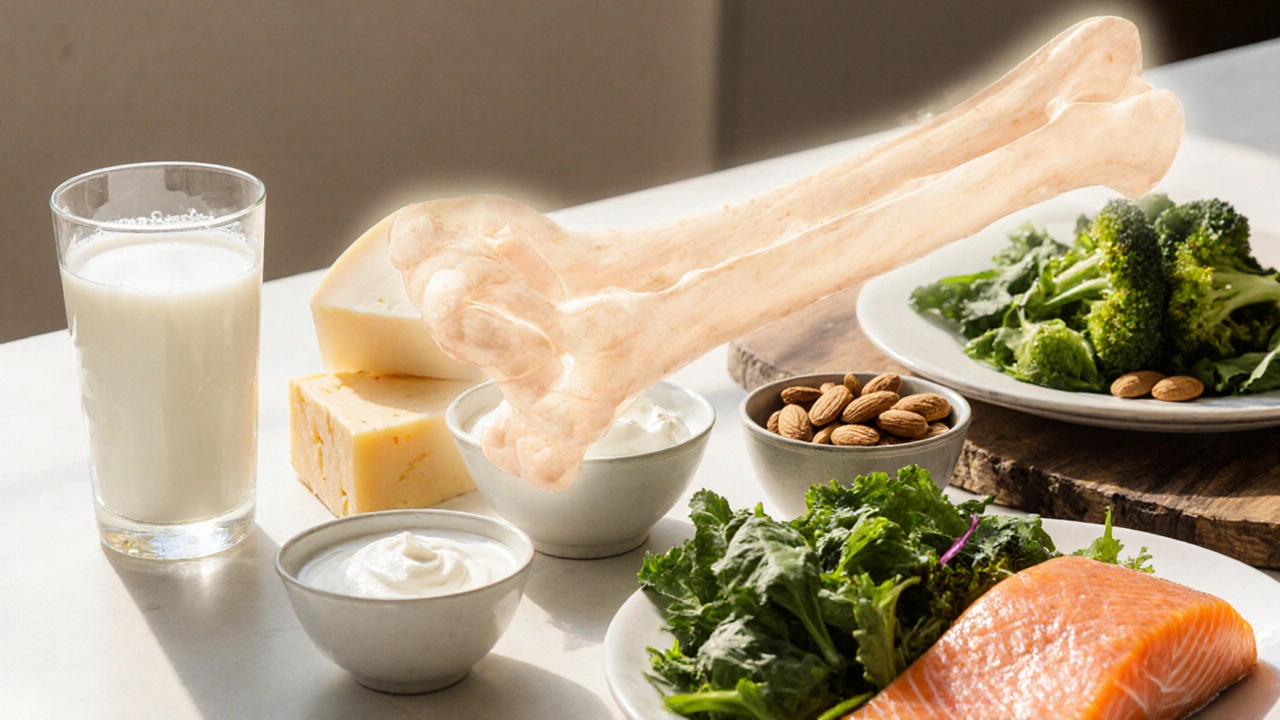When talking about Calcium, a mineral essential for strong bones, teeth, and many body functions. Also known as Ca, it plays a role in muscle contraction, nerve signaling, and blood clotting. Your body can’t make calcium, so you need it from food or supplements. Most people think of dairy as the go‑to source, but leafy greens, fortified plant milks, and fish with bones also pack a punch. Getting enough of this mineral is a daily habit that supports everything from a solid smile to a steady heartbeat.
One key player that works hand‑in‑hand with calcium is Vitamin D, the fat‑soluble vitamin that boosts calcium absorption in the gut. Without adequate vitamin D, even a diet rich in calcium can fall short because the mineral stays locked in the digestive tract. Another important concept is Osteoporosis, a condition where bones become fragile and more likely to break. Low calcium intake over years is a major risk factor for this disease, especially for post‑menopausal women and older adults. To fight that risk, many turn to calcium supplements, products like calcium carbonate or calcium citrate that add extra mineral to the diet. The choice between carbonate and citrate often depends on stomach acidity and personal tolerance. While supplements can fill gaps, the best approach is still a balanced diet paired with safe sun exposure or a vitamin D pill to make the most of what you eat.
Here’s how you can keep your calcium levels in the sweet spot without overcomplicating things. First, aim for about 1,000 mg a day if you’re under 50, and bump it up to 1,200 mg after that age. A cup of milk gives roughly 300 mg, a serving of yogurt adds another 200 mg, and a half‑cup of cooked broccoli sneaks in about 40 mg. If you’re vegan or lactose‑intolerant, fortified soy or almond milk usually matches dairy’s calcium punch, and a 3‑ounce serving of canned salmon with bones can deliver 180 mg. Second, pair calcium‑rich meals with a source of vitamin D—think a sunny walk, a fortified orange juice, or a small supplement. Third, watch out for factors that hinder absorption, like too much caffeine or excessive sodium, which can make you lose calcium in the urine. Finally, if you decide to use a supplement, take it with food and avoid taking it at the same time as iron or high‑dose zinc, because those minerals compete for absorption. By understanding how calcium interacts with vitamin D, recognizing the warning signs of osteoporosis, and choosing the right supplement when needed, you set yourself up for stronger bones and smoother daily life. Below you’ll find a collection of articles that dive deeper into specific drugs, supplements, and health tips related to calcium and its role in the body.

Explore how key nutrients like calcium, vitamin D, magnesium, and vitamin K2 affect bone health, learn the foods that strengthen or weaken bones, and get practical diet tips to prevent damage.
CONTINUE READING